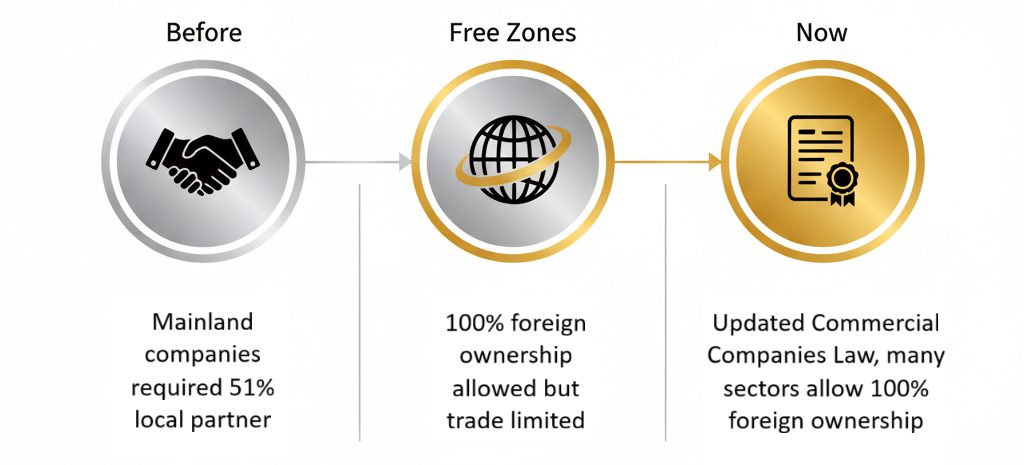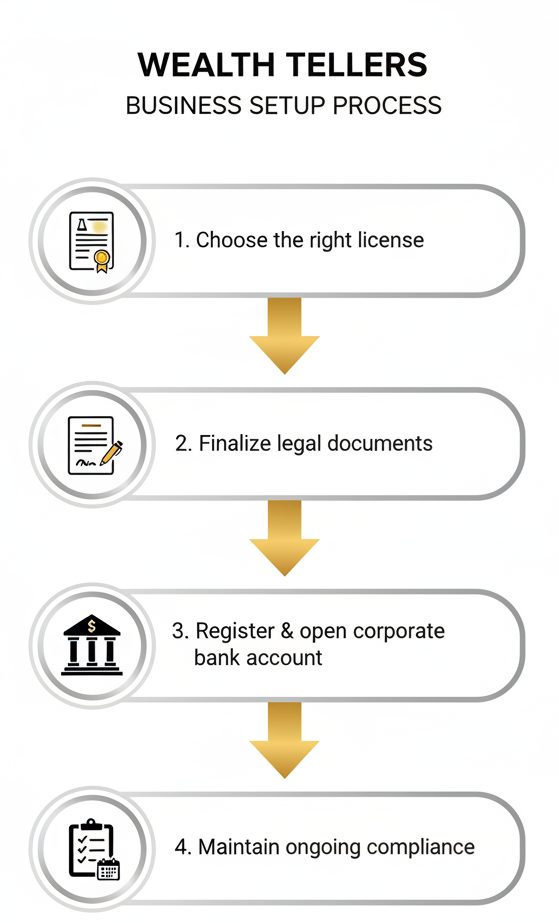If you’ve been eyeing the United Arab Emirates as your next big venture spot, you’re probably asking one key question: can foreigners truly own 100 percent of a UAE business? The short answer is yes, but there are a few essential details to keep in mind. Here’s the rundown on how it works, the rules you need to know, and the steps for making your business plan a reality.
Understand The Basic Ownership Landscape
Before diving into the specifics, it’s helpful to get a grasp on how foreign ownership has evolved in the UAE. Traditionally, foreign investors needed a local partner to hold at least 51 percent of the shares in a mainland company. Meanwhile, free zones remain known for their 100 percent foreign ownership allowances, but they come with specific trade limitations. Recent legislative changes, however, have shifted the playing field for companies set up outside these zones.

Mainland vs. Free Zone
Mainland: With updates to the Commercial Companies Law, many sectors now permit 100 percent foreign ownership. However, some strategic industries still require local partners. If you’re unsure which category your business falls under, a brief look at mainland vs free zone can help clarify which option is best for you.
Free Zone: In a free zone, it’s still possible to maintain full ownership with no local sponsor. Free zones are often favored for straightforward setup processes, but you may be limited to operating mostly within the zone itself or internationally rather than trading freely in the UAE mainland.
Key Steps For Securing 100 Percent Ownership
Claiming complete control of your UAE-based venture involves jumping through a few legal hoops. The good news is that the process doesn’t have to feel overwhelming when you know what to expect.
Choose The Right License
The first step is figuring out the correct license for your business activities. Depending on whether you’ll focus on commercial, industrial, or professional services, you’ll need to comply with corresponding regulations. If you’re new to this, types of business licenses in the uae sheds light on what each license entails and how to apply.
Finalize Legal Requirements
Drafting incorporation documents (such as a memorandum of association) that reflect full or shared ownership stakes.
Registering with local authorities for permits or approvals, which can include compliance services to ensure you meet UAE standards and regulations.
- Setting up corporate banking in the UAE to handle your finances smoothly.
Applying for additional support if needed, such as pro services to manage government documentation, visa paperwork, and other official tasks.
Maintain Ongoing Compliance
After you’re officially registered, staying on top of annual requirements is critical. This may include renewing your trade license, filing taxes properly, and updating corporate records. You can also check out accounting and bookkeeping solutions to keep your finances in line, plus tax consultancy if you need guidance on local taxation norms.

Common Questions You Might Have
Below are some quick answers to queries entrepreneurs often raise when exploring 100 business ownership in the UAE:
Do I need a local sponsor if I’m setting up in mainland?
In many sectors, no. Thanks to the new laws, certain businesses can enjoy complete foreign control. However, some strategic fields (like oil and gas) still require local participation.
Are free zones more flexible than mainland?
Free zones offer 100 percent foreign ownership across the board, but you’ll be limited in trading on the mainland. Mainland firms allow local market access, which can be a huge advantage, depending on your goals.
How complicated is the visa process?
It’s mostly straightforward, but the paperwork can feel like a lot. This is when how to setup a business in the uae or reliable concierge services prove invaluable for smoothing out any red tape.
Moving Forward With Confidence
Owning 100 percent of a business in the UAE is more possible now than ever. You’ve got flexible laws, free zone options, and supportive infrastructure that streamlines the entire setup phase. Once you decide on the ideal structure, license, and location, the rest involves staying compliant and tapping into professional assistance when needed.
If you’re still weighing options, take a closer look at the specifics of your chosen sector and ask yourself which environment, mainland or free zone, best serves your expansion plans. With the right strategy, the UAE can be the launchpad for your global ambitions, letting you enjoy full control of your venture from day one.







